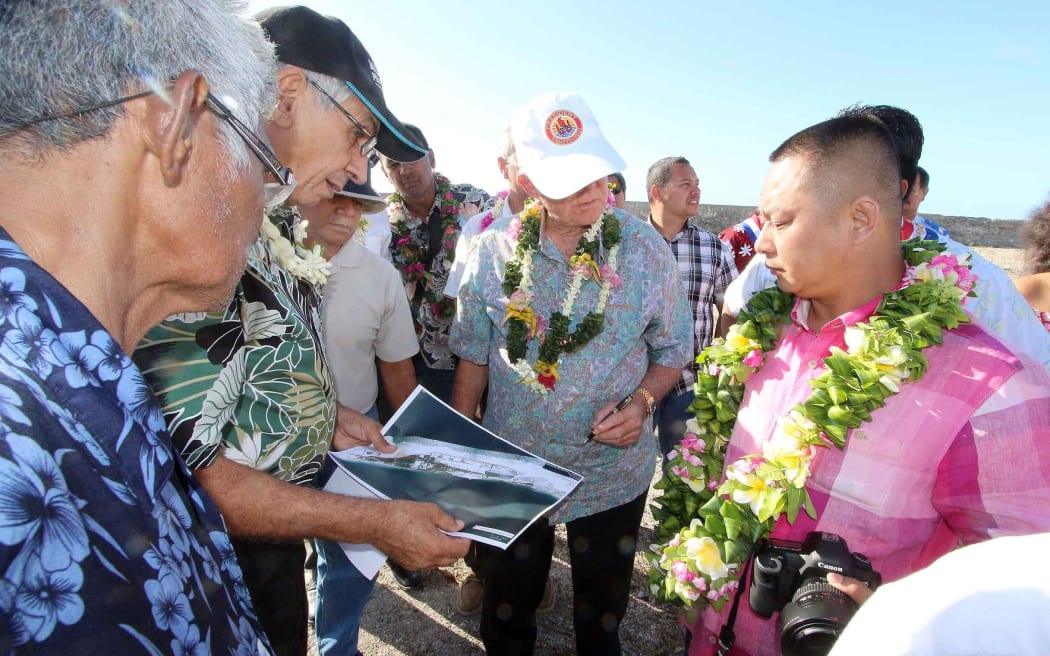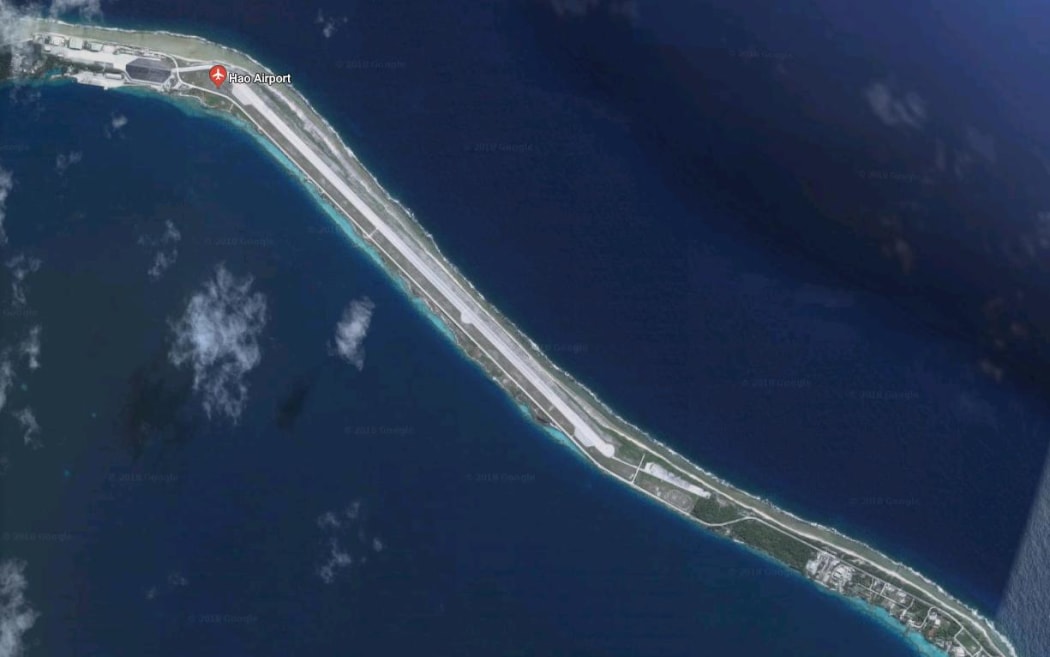A study into the proposed Chinese fish farm at French Polynesia's Hao atoll has called into question the economic and environmental viability of the project.

Chinese delegation visiting Hao atoll, June 2014 Photo: Photo courtesy of Govt of French Polynesia
Part of the study by the IRD institute was published by La Depeche newspaper.
The paper said the report was commissioned by the advisory body, the Economic, Social, Environmental and Cultural Council, but the Council denies this.
The study found that on the basis of the information available, the farm could not be profitable because for each kilo of fish flesh produced in a lagoon cage ten kilos of protein would have to be imported as feed.
To meet the stated production target of 50,000 tonnes of fish a year, the company Tahiti Nui Ocean Foods would need to import 500,000 tonnes of feed.
The study warns of the environmental pressure on the lagoon, which only has a single pass for its water to be refreshed.

Hao atoll Photo: Google Maps
The French Polynesian government has been awaiting the start of construction work at Hao for years but the project has been plagued by delays.
In a recent development the head of Tahiti Nui Ocean Foods said the UN's Food and Agriculture Organisation could be a partner because the Hao fish farm could serve as a pilot project for aquaculture conforming with high environmental standards.

